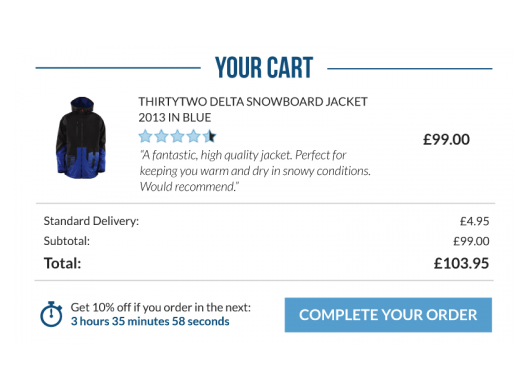The way we buy products and services changed forever when the internet was born. In the ensuing 35 years or so, e-commerce has transformed how shoppers make their purchase decisions, with so many of them now relying on the advice and recommendations of their peers – whether they are friends, relatives or even complete strangers. It’s called third-party endorsement, or social proof. Here’s how to make that work in your favour and how get the best for your business via email marketing via ratings and reviews:
When was the last time you booked a hotel room, or a restaurant without reading a review and checking out the candid photos from other guests? Do you look at a product’s star rating before adding it to your cart? You are not alone. Shoppers have changed the way they evaluate products. They increasingly look at peer ratings and reviews for information about the best product to choose. Reports indicate that the vast majority of consumers read online reviews (97%) and trust them as much as recommendations from personal contacts (85%). Today, product ratings are an intrinsic part of our purchase decision process and, while many retailers have embraced them, their true potential to drive revenues across channels has been stifled.

Social psychologist Robert Cialdini.
The idea that people look to those who are similar to themselves when making decisions isn’t new. In the world of psychology, it is referred to as ‘social proof’, a term widely attributed to Dr Robert Cialdini (pictured left), whose book ‘Influence: The Psychology of Persuasion’ was first published in 1984. Coincidently, this was also the year in which the internet was born.
Yet, you need to roll forward to 2005-07 (the launch of Power Reviews and Trustpilot) to see social proof really begin to take off in the world of e-commerce and subsequently transform how shoppers make more informed buying decisions. Today, there are a plethora of rating and review services at the disposal of retailers and customers, with some of the most prominent being Feefo, Reevoo and Bazaarvoice. Roughly 500,000 new reviews are posted using Trustpilot each month alone.
While the vast majority of retailers and consumers are sold on the power of third-party endorsement, many brands are still not using them in marketing to their full advantage. Reviews have been effectively used on websites for a while now, giving shoppers a sense of safety and reliability and lifting average revenue per visit by 65% and conversions on product pages by 52%.
Using social proof to push email conversion rates
However, in email marketing this powerful technique hasn’t been widely adopted yet as displaying real-time content from third-party review platforms used to require hard coding. The good news is that things are changing fast with the launch of new integrations and the subsequent, rapidly growing adoption in emails. So how can you use social proof to take your email conversion rates to the next level?
A well-timed, personalised cart or browse abandonment email is a tried, tested and proven marketing technique, often recovering significant and otherwise lost revenue opportunities. Now, add in the latest 5-star reviews and comments about the carted or viewed products, such as:
- ‘Great quality’
- ‘My husband loved it!’
- ‘Excellent value for money’
- ‘My friends all ask where I bought it’
This way, you instill confidence in the shopper to proceed through the checkout. In fact, a recent A/B test with a well-known UK retailer reported an impressive 40% uplift in sales from emails containing ratings and reviews, when compared to shopping recovery emails that didn’t include reviews.
Ratings and reviews also help you to be smarter and more targeted in your product recommendations. Leverage the wisdom of the crowds and only recommend highly rated products or lead with the most popular products based on average ratings and number of reviews.
It is also worth reiterating Cialdini’s observation about people looking to others who are similar to themselves. Ratings and reviews that are accompanied by the customer’s name, age and location as well as the date of the review can add further credence.
One organisation that has taken the lead in the adoption of social proof in marketing emails is VioVet Ltd, one of the UK’s largest and most trusted veterinary supplies retailers. Its marketing manager, Verity Beaton, recently observed: “Having the functionality to add ratings and reviews to our automated emails enables our customers to make a better-informed purchasing decision.” This is echoed by Kadija Nakhli, email marketing specialist at Wex Photographic, who added: “These ratings help our users understand the value of the product they want to purchase and sets their mind at ease. It is a great feature and for sure it has added an impact to our triggered emails.”
In the age of 1-to-1 personalisation, also consider targeting shoppers based on their customer lifecycle stage. For example, show potential first-time customers strong store reviews in your emails; loyal customers who already have a relationship with you will be more interested in product-specific messaging.
With the rise of user-generated content (UGC) and real-time marketing, social proof has become a cost-effective tactic to acquire, grow and retain customers. Put simply, it helps customers make a purchase decision and feel confident about their choice. Whether it is on your website, mobile app, or email (and ideally all of them), the prominent display of up-to-date, genuine and unbiased ratings and reviews can make a big difference to your conversion rates and revenue.
Have an opinion on this article? Please join in the discussion: the GMA is a community of data driven marketers and YOUR opinion counts.







Leave your thoughts